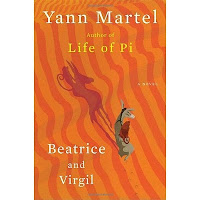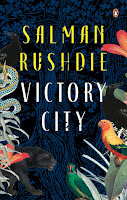Miscellany:
Interesting reads after a long, long while.
The Housekeeper + The Professor
By Yoko Ogawa
Modern day Japan, a brilliant mathematics professor, his housekeeper and her son are the constituents of the book. The professor is old and is the victim of an accident that has left his memory impaired. He can remember just 80 minutes of the immediate past, though he can remember what has happened in the distant one. The housekeeper is young and a single mother, coping with all that entails. Each day she comes to the professor’s house, having to introduce herself to him all over again. But over time there forms a special bond between mother, son and the professor. Mathematics is a kind of glue, with the professor infusing his love of numbers to the mother and son. Abundant numbers, amicable numbers, prime numbers, perfect numbers – all seem magical to the young housekeeper and her son for whom they take on a life of their own. It is a warm, cozy world that they create, the three of them. Of course, the outside world intrudes when they least want it. But the lack of memory, the indifference of outsiders, none of it can ultimately harm a bond that has been created so unwittingly and naturally. Ogawa writes a lovely little tale, suffusing it with intricate detail of setting, thought and action. Even the maths seems wonderful and enticing.
The Other
By David Guterson
 I remember reading Snow Falling on Cedars and loving it. Guterson’s The Other, while being a good read is not in the same class.
I remember reading Snow Falling on Cedars and loving it. Guterson’s The Other, while being a good read is not in the same class.
John William Barry is The Other to Neil Countryman. He is upper class, country club, prep school variety while Neil comes from strictly working class, blue collar stock. They grow up in Seattle, Bill Gates territory. Their lives meet at an innocuous middle distance race that both of them lose. From then on, the teenage boys become friends, live through the post Vietnam decades, smoking pot, reading literature, trekking into the wild, having intellectual discussions about the state of the world. There is one big difference though. Neil does the usual things liberal American youngsters did in the seventies. Take a year off to travel around Europe, co-habit with a girl with the same sensibilities, get married, have kids. John William on the other hand withdraws from the world. For years, he inhabits a cave in the middle of the forest, subsisting mostly on what the forest can give him and what his good friend Neil can bring him from the outside ‘hamburger world’. He subscribes to ‘gnosticism’, a strange mystical religion and believes that everything outside is evil. Neil continues to keep in touch with him, feeding him books, food and Playboy; all the while contrasting his own regular life with his friend’s extreme one. John William ultimately dies, leaving his fortune to Neil. And it is left to Neil to make sense of the enormous burden of the gift and a life that was so different from his, weird and tragic and yet so strangely idealistic.
It is a slow ponderous book. Guterson does manage to get some amount of interest going with the strangeness of John William, but there is little sympathy he generates for any of the characters. Neil is workmanlike and plain lucky. John William has a childhood to blame for the way he turned out, yet there is no getting away from his bizarreness. And there is no other character that is sketched out enough to be interesting.
This is no Snow Falling on Cedars. But if you have lots of time and can’t seem to find anything more interesting to do, The Other will not be too bad a choice.
Juliet, Naked
By Nick Hornby
How is it that I have never got around to reading Nick Hornby? Not High Fidelity, not About a Boy. Juliet, Naked is my first Hornby and I liked it very much.
Maybe it’s something to do with being 40 and looking back on life and regretting the things you have not done. Like Annie. Who is 39, living in an uninspiring, innocuous British seaside town called Gooleness, managing a local museum, curating a show of Gooleness in 1964, living with Duncan for 15 years, childless. Duncan’s only passion is an American rock musician Tucker Crowe who made a few albums and then disappeared from the public eye. He is obsessed with Crowe, knows everything about his music and life and manages a website online where Crowe-worshippers like him get together to exchange notes. Hornby is quite at his best describing this ladd-ish music obsession. Annie is bored, wishes some of that passion for herself and is beginning to feel she has wasted the last 15 years of her life. Inadvertently, she invites a possibility of recklessness into her life when she posts a review of a new Crowe album, Juliet, Naked on Duncan’s website. Juliet, Naked is a series of work-in-progress recordings of Crowe’s most famous album Juliet. She is honest about the album’s lack of quality in her review and that ironically gets Tucker Crowe himself to write to her.
Their correspondence gets to be a relationship and soon we are familiar with Tucker Crowe’s regrets too – his string of ex-wives and children he does not really know, decades of artistic incoherence, his inability to form any meaningful relationship. Between Duncan, Annie and Tucker, we are witness to a full-blown thesis on loneliness and the lengths people can go to for love.
Juliet, Naked is honest to the point of ruthlessness. Yet its honesty is never without humour, irony and wit. Hornby writes profundity with a touch of lightness. His offbeat style marries quirky comedy and moral anguish cleverly. This is a find.






